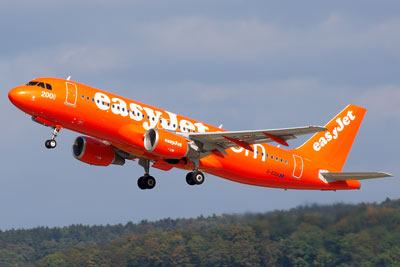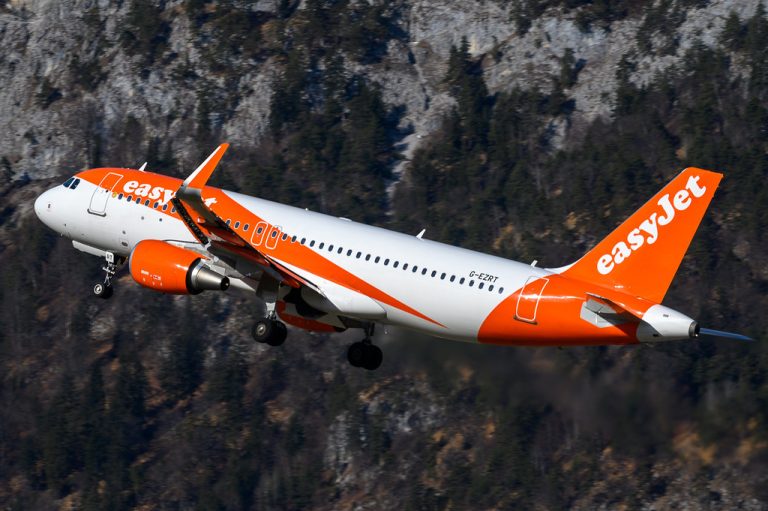easyJet Plc (LON:EZJ), today announced the results for the year ending 30 September 2018.
Summary
Delivering profitable growth
· Record number of passengers flown at 88.5 million up +10.2% with a record load factor of 92.9% (2017 92.6%), driven by continued focus on customer offer and easyJet’s primary airports strategy including expansion into Tegel and gaining seven new number one airport positions
· Market leading revenue performance with total revenue of £5,898 million, up +16.8% and revenue per seat growing 6.4% to £61.94 (8.3% growth ex-Tegel)
· Headline cost per seat excluding fuel up 5.3% to £43.43 (4.8% increase at constant currency1), mainly due to expansion into Tegel, higher levels of disruption and crew cost inflation
· Cost and efficiency programme savings of £107 million (2017 £85m) delivered, leveraging growth, scale benefits and up-gauging of fleet
· Non-headline cost of £133 million including £40 million at Tegel and £65 million from a change in approach to IT development. Total cost per seat, including the impact of non-headline items, was £57.26 (2017 £53.78)
· Headline profit before tax for the year at £578 million, up £170 million or 41.4%. Total headline profit before tax per seat increased by 28.7% to £6.07 per seat
· Reported profit before tax increased to £445 million (2017 £385m)
· As a result of this strong performance, headline ROCE2 for the year increased to 14.4%, an improvement of 2.5 percentage points on the prior year
· Proposed dividend of 58.6 pence (2017 40.9p) an increase of 43% subject to approval by shareholders
Acquisition of Tegel operations
· Acquisition of part of Air Berlin’s operations at Berlin Tegel completed on 15 December for a consideration of €40 million, giving easyJet a strong number one position in Europe’s third largest market
· Total loss before tax of £152 million better than originally expected on acquisition. Headline loss of £112 million higher than expected offset by lower integration costs of £40 million
· Operations transitioned to business-as-usual with over 20 easyJet aircraft now flying in Tegel, with good on-time performance and increased brand recognition in the Berlin market
Well positioned for the future
· easyJet’s strategic framework has been refreshed and relaunched, building on an already strong foundation, evolving to deliver an unrivalled customer experience through its high-quality network of primary airports at great value, with the warmest welcome in the sky
· Through this strategy easyJet will continue to pursue disciplined growth, supported by the agreement today with Airbus for 17 firm orders, 18 deferrals and 25 purchase options over the next five years, providing additional delivery flexibility
· Good progress has been made on new initiatives in loyalty, holidays and business, which are expected to deliver high-return, margin-accretive contributions
· easyJet will deliver strong cost control through its focus on value by efficiency, leading the industry in proactively tackling disruption to minimise its impact on customers and cost
· Becoming the most data-driven airline in the world will improve the customer experience, drive revenue, reduce cost and improve operational reliability
· Robust cash flow generation and an investment-grade balance sheet with strong liquidity provides a solid base to withstand industry change and the agility to invest in new opportunities
· A solid hedging position provides a buffer against fuel head-winds over the next 18 months
Outlook
· easyJet is confident that its strategy and positioning will deliver substantial value for its shareholders, with a focus on return on capital, positive free cash flow and profit per seat
· easyJet’s capacity growth in the first half is forecast at circa 15% and at circa 10% for the full year
· Solid demand in forward bookings of 50% for the first half, with yields ahead of loads
· Bookings for next summer promising at this very early stage, slightly ahead of summer 2018
· On a like for like accounting basis3 revenue per seat at constant currency for the first half is expected to be down by low to mid-single digits, in line with previous guidance, including the effect of annualisation of one-off revenue benefits from the 2018 financial year, dilution from Berlin and the effect of Easter moving into the second half
· On a like for like accounting basis total headline cost per seat excluding fuel at constant currency (assuming normal levels of disruption) is expected to be flat for the 12 months to 30 September 2019. This includes expenditures on the strategic initiatives to drive margin and returns in the long term
· Adjusting for the impact of IFRS 15, revenue per seat at constant currency in the first half is currently expected to be down by mid-single digits and total headline cost per seat excluding fuel at constant currency is expected to improve slightly.
· Capital expenditure for the financial year to 30 September 2019 is expected to be £1 billion
· easyJet has continued to prepare for Brexit, operating via airlines in the UK, Switzerland and Austria to enable ongoing flying in Europe, and is close to achieving majority EEA (excluding UK) ownership – currently at 47%
Commenting on the results, Johan Lundgren, easyJet Chief Executive said:
” easyJet has delivered a great performance during the year, growing headline profit before tax by 41 per cent, once again flying a record number of passengers at our highest ever annual load factor. The integration of new operations at Tegel has also progressed well and our brand consideration in Berlin has grown strongly. Our financial success and increasing customer loyalty demonstrate the resilience of our operations, the underlying strength of our business and our unrivalled customer experience.
“Our strategy continues to ensure we are well positioned for the future. We have made considerable progress on our new initiatives in holidays, business and loyalty, which will enable us to grow profitably. While disruption continues to be a major challenge for the industry, we are investing in resilience to help to mitigate the impact on our customers.
“Forward bookings are solid, with 50% of seats sold in the first half, in line with the prior year. We are confident in our positioning for the future and are focused on driving future returns, positive free cash flow over the longer term and maximising our headline profit per seat as we continue to deliver value for our customers and shareholders.”
|
|
2018 |
2017 |
Change Favourable/(adverse) |
||
|
Total revenue (£ million) |
5,898 |
5,047 |
16.8 |
% |
|
|
Capacity (millions of seats) |
95.2 |
86.7 |
9.8 |
% |
|
|
Passengers (millions) |
88.5 |
80.2 |
10.2 |
% |
|
|
Load factor (%) |
92.9 |
92.6 |
0.3 |
ppt |
|
|
Headline profit before tax excluding Tegel (£ million) Headline profit before tax (£ million) |
690 578 |
408 408 |
£282 £170 |
m m |
|
|
Total profit before tax (£ million) |
445 |
385 |
£60 |
m |
|
|
Basic total earnings per share (pence) |
90.9 |
77.4 |
13.5 |
pence |
|
|
Proposed ordinary dividend per share (pence) |
58.6 |
40.9 |
43.3 |
% |
|
|
Headline return on capital employed (%) |
14.4 |
11.9 |
2.5 |
ppt |
|









































